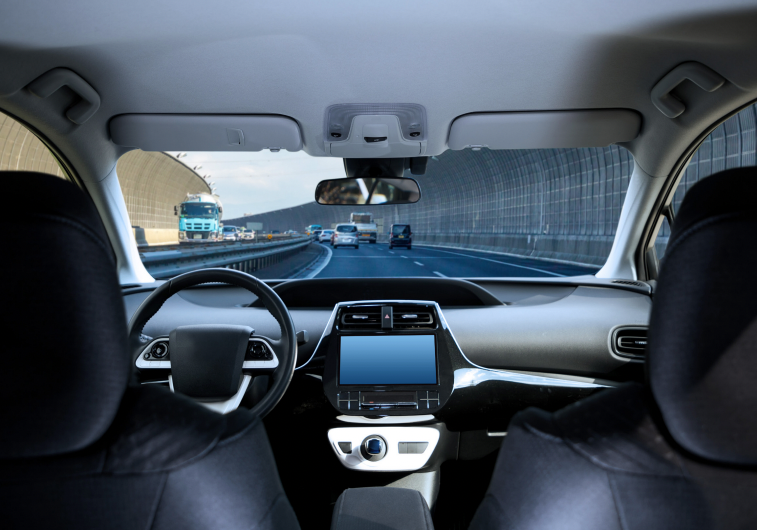In today’s rapidly changing world, the intersection of technology, data, and policy plays a crucial role in addressing some of our most pressing societal challenges. Ph.D. candidates from the Department of Engineering Management and Systems Engineering (EMSE), Leah Kaplan, Aditya Singh, Weijie Pan, and Lujin Zhao, presented innovative solutions at this nexus at the Technology, Data, and Policy (TDP) Conference, held at MIT from June 16 to 18, 2024.
The TDP conference annually convenes members of the Technology, Management, and Policy (TMP) Consortium, a group of graduate students engaged in technology and policy research. This year marked the first post-pandemic conference, with the last meeting held on GW’s campus in 2019. The conference provides a platform for these students to present their research for feedback and strengthen the broader technology and policy research network.
“Technology policy is still a relatively small group of researchers, so the conference was a great way to meet people working in that space. Even if we aren’t focused on the same technology area, we all share an interest in engineering and policy, so everyone has something to share about your research,” said Singh.
Technical analysis and data are indispensable tools for shaping well-informed policy decisions. From the implementation of artificial intelligence (AI) in transportation to the widespread adoption of electric vehicles (EVs), each GW Engineering student’s project exemplified how to leverage these tools to guide policy-making effectively across various areas. Conference organizers divided the technical sessions into themes to touch on these points of overlap, such as transportation, cyber/AI, renewables, science policy, and decarbonization.
Regarding the future of transportation, Kaplan shared insights from her award-winning study, “Mapping the AI-Enabled Transformation of Labor in Autonomous Taxi Services.” Her research, which won first place in GW’s Three-Minute Thesis (3MT) Competition and the “People’s Choice” award in the 3MT regional finals, delves into the complex interplay between automation and human labor, shedding light on the societal impacts of autonomous vehicles. At the TDP conference, she was named one of the three best presentation winners.
In addition to impacts on labor, AI-enabled systems pose significant safety risks, especially in time-critical scenarios where AI errors can be fatal, such as in self-driving cars. Singh’s research stressed the importance of explicitly integrating human control into the system’s configuration to mitigate these risks, which he highlighted as lacking in existing policies. In his study, Singh examined system architectures that enable human control and collaboration to characterize how different approaches create varying tradeoffs between system risk and performance.
“The hope is that this research will enable policy to be written more precisely and ensure that human control is an effective safety mechanism,” Singh stated.
Regarding renewable energy, Pan’s work focused on enhancing resilience in offshore wind farms (OWFs) by investigating the influence of OWF network configurations on the optimal capacities of battery energy storage systems in the face of rare but severe system failures. By employing a sequential “planning plus operational” integrated modeling approach on three test systems, he concluded the optimal capacity is approximately 16% of the daily generation at full capacity.
“This result particularly benefits the standardization of the decision-making process for backup battery capacities in the renewable technology industry,” said Pan. “It further facilitates the wider adoption of renewable-based power generation technologies for reaching decarbonization targets and potentially offers insightful ideas for redesigning the electricity market as more renewable energy sources come into play.”
Another essential vehicle for decarbonization in the U.S. is the widespread use of EVs. Zhao’s study on EV mileage, co-authored with assistant professor John Helveston and titled “Quantifying Electric Vehicle Mileage in the United States,” revealed significant discrepancies between expected and actual EV usage. The research, one of the most extensive studies on EV mileage to date, found EV owners drive far fewer miles than gas vehicle owners, prompting a reevaluation of their environmental benefits via emissions savings.
The research presented by Kaplan, Singh, Pan, and Zhao collectively underscores the complex interplay between technology and policy. Their studies emphasize the need for precise policies and innovative solutions to advance sustainable development and safety, demonstrating how technical analysis and data utilization can aid in accomplishing these goals.
“This conference undoubtedly brought together experts, professionals, and scholars in the policy-making field. By exchanging ideas with these peers, I was not only impressed by the methodologies they used to explore the reasons behind some pressing social topics, such as the emerging market for electric vehicles, concerns about the digitalization of social media, and thoughts on energy equity, but I was also stimulated to consider the true motivations behind my work further,” Pan said.


